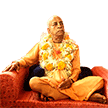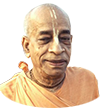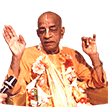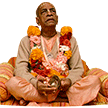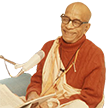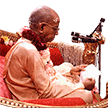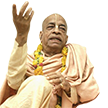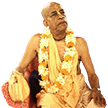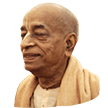Balarama - a glorious personality: Difference between revisions
(Created page with "Category:Glorious Personalities Category:Glorious Personalities from Srimad Bhagavatam Category:Glorious Personalities - Pages Under Construction <!---------------...") |
No edit summary |
||
| Line 1: | Line 1: | ||
[[Category:Glorious Personalities]] | [[Category:Glorious Personalities]] | ||
[[Category:Glorious Personalities from Srimad Bhagavatam]] | [[Category:Glorious Personalities from Srimad Bhagavatam]] | ||
[[Category:Glorious Personalities from Sri Caitanya Caritamrta]] | |||
[[Category:Glorious Personalities - Pages Under Construction]] | [[Category:Glorious Personalities - Pages Under Construction]] | ||
<!---------------- BEGIN PICTURE ----------------> | <!---------------- BEGIN PICTURE ----------------> | ||
| Line 23: | Line 24: | ||
---- | ---- | ||
<!---------------- BEGIN SHORT SUMMARY TEXT ----------------> | <!---------------- BEGIN SHORT SUMMARY TEXT ----------------> | ||
INTRODUCTION | INTRODUCTION TEXT TO BE WRITTEN | ||
<!----------------- END SHORT SUMMARY TEXT -----------------> | <!----------------- END SHORT SUMMARY TEXT -----------------> | ||
{{Personalitiesnav}} | {{Personalitiesnav}} | ||
<!---------------- BEGIN STANDARD HEADING ----------------> | <!---------------- BEGIN STANDARD HEADING ----------------> | ||
Srila Prabhupada's books, lectures, conversations and letters | Srila Prabhupada's books, lectures, conversations and letters reveal the qualities of this glorious personality as seen in the Vaniquotes '''[[Vaniquotes:Category:Balarama|Balarāma]]''' category. An introduction to Balarāma from Srila Prabhupada's teachings is given below in the following 10 quotes. | ||
<!----------------- END STANDARD HEADING -----------------> | <!----------------- END STANDARD HEADING -----------------> | ||
== Quotes from Srila Prabhupada's teachings == | |||
<!---------------- BEGIN QUOTE BOXES ----------------> | <!---------------- BEGIN QUOTE BOXES ----------------> | ||
{{VaniQuotebox|Baladeva was actually the son of Devaki, but He was transferred from Devaki's womb to that of Rohini. This fact was not disclosed|Baladeva was actually the son of Devakī, but He was transferred from Devakī's womb to that of Rohiṇī. This fact was not disclosed. '''(Śrīmad-Bhāgavatam 10.8.12)'''}} | {{VaniQuotebox|Baladeva was actually the son of Devaki, but He was transferred from Devaki's womb to that of Rohini. This fact was not disclosed|Baladeva was actually the son of Devakī, but He was transferred from Devakī's womb to that of Rohiṇī. This fact was not disclosed. '''(Śrīmad-Bhāgavatam 10.8.12)'''}} | ||
{{VaniQuotebox|According to expert opinion, Balarama, as the chief of the original quadruple forms, is also the original Sankarsana|According to expert opinion, Balarāma, as the chief of the original quadruple forms, is also the original Saṅkarṣaṇa. Balarāma, the first expansion of Kṛṣṇa, expands Himself in five forms: (1) Mahā-saṅkarṣaṇa, (2) Kāraṇodakaśāyī, (3) Garbhodakaśāyī, (4) Kṣīrodakaśāyī, and (5) Śeṣa. '''(Caitanya-caritāmṛta, Ādi-līlā 5.10)'''}} | {{VaniQuotebox|According to expert opinion, Balarama, as the chief of the original quadruple forms, is also the original Sankarsana|According to expert opinion, Balarāma, as the chief of the original quadruple forms, is also the original Saṅkarṣaṇa. Balarāma, the first expansion of Kṛṣṇa, expands Himself in five forms: (1) Mahā-saṅkarṣaṇa, (2) Kāraṇodakaśāyī, (3) Garbhodakaśāyī, (4) Kṣīrodakaśāyī, and (5) Śeṣa. '''(Caitanya-caritāmṛta, Ādi-līlā 5.10)'''}} | ||
{{VaniQuotebox|After Kamsa's wrestlers expressed their determination, the Supreme Personality of Godhead, the killer of Madhu, confronted Canura, and Lord Balarama, the son of Rohini, confronted Mustika|After Kaṁsa's wrestlers expressed their determination, the Supreme Personality of Godhead, the killer of Madhu, confronted Cāṇūra, and Lord Balarāma, the son of Rohiṇī, confronted Muṣṭika. Kṛṣṇa and Cāṇūra and then Balarāma and Muṣṭika locked themselves hand to hand, leg to leg, and each began to press against the other with a view to coming out victorious. '''(Kṛṣṇa Book, Chapter 44)'''}} | |||
{{VaniQuotebox|After nearly a year, Baladeva observed that all the cowherd boys and calves were expansions of Krsna. Thus He inquired from Krsna and was informed of what had happened|A special feature of this pastime was that the mothers of the cowherd boys thus became more attached to their respective sons, and the cows became more attached to their calves. After nearly a year, Baladeva observed that all the cowherd boys and calves were expansions of Kṛṣṇa. Thus He inquired from Kṛṣṇa and was informed of what had happened. '''(Śrīmad-Bhāgavatam 10.13 Summary)'''}} | |||
{{VaniQuotebox|After seeing the deficiency of realization in Romaharsana Suta, Lord Balarama decided to chastise him for being puffed up|After seeing the deficiency of realization in Romaharṣaṇa Sūta, Lord Balarāma decided to chastise him for being puffed up. Lord Balarāma therefore said, "This man is liable to be awarded the death punishment because although he has the good qualification of being a disciple of Lord Vyāsadeva, and although he has studied all the Vedic literature from this exalted personality, he was not submissive in the presence of the Supreme Personality of Godhead." '''(Kṛṣṇa Book, Chapter 78)'''}} | |||
{{VaniQuotebox|After taking His (Balarama's) bath in the river Godavari and performing the necessary ritualistic ceremonies, He gradually visited the other rivers - the Vena, Pampa and Bhimarathi|After taking His bath in the river Godāvarī and performing the necessary ritualistic ceremonies, He gradually visited the other rivers—the Veṇā, Pampā and Bhīmarathī. On the bank of the river Bhīmarathī is the deity called Svāmī Kārttikeya. After visiting Kārttikeya, Lord Balarāma gradually proceeded to Śailapura, a pilgrimage city in the province of Mahārāṣṭra. '''(Kṛṣṇa Book, Chapter 79)'''}} | |||
{{VaniQuotebox|Although Lord Baladeva appeared before the birth of Lord Krsna and is therefore Krsna's worshipable elder brother, He used to act as Krsna's eternal servitor|Although Lord Baladeva appeared before the birth of Lord Kṛṣṇa and is therefore Kṛṣṇa's worshipable elder brother, He used to act as Kṛṣṇa's eternal servitor. In the spiritual sky all the Vaikuṇṭha planets are predominated by the quadruple expansions of Kṛṣṇa known as the catur-vyūha. They are direct expansions from Baladeva. '''(Caitanya-caritāmṛta, Ādi-līlā 6.76)'''}} | |||
{{VaniQuotebox|Although Lord Balarama knew very well that by slight provocation people are prepared to fight with one another in the Age of Kali, He did not like the idea that the two great dynasties, the Kuru dynasty and the Yadu dynasty, would fight amongst themselves|Although Lord Balarāma knew very well that by slight provocation people are prepared to fight with one another in the Age of Kali, He did not like the idea that the two great dynasties, the Kuru dynasty and the Yadu dynasty, would fight amongst themselves, even though they were influenced by Kali-yuga. "Instead of fighting with them," He wisely thought, "let Me go there and see the situation, and let Me try to see if the fight can be settled by mutual understanding." '''(Kṛṣṇa Book, Chapter 68)'''}} | |||
{{VaniQuotebox|At the last stage, He (Balarama) departed from this world by producing a great white snake from His mouth, and thus He was carried by Sesanaga in the shape of a serpent|The funeral ceremony of Abhimanyu, the son of Arjuna, was performed by Him, as He was the maternal uncle. It was impossible to be performed by any one of the Pāṇḍavas, who were all overwhelmed with grief. At the last stage, He departed from this world by producing a great white snake from His mouth, and thus He was carried by Śeṣanāga in the shape of a serpent. '''(Śrīmad-Bhāgavatam 1.11.16-17)'''}} | |||
{{VaniQuotebox|Baladeva is an expansion of Krsna, and from Baladeva the next expansion is Sankarsana; thus Sankarsana is kala, but Baladeva is svamsa. There is no difference, however, among Them|Baladeva is an expansion of Kṛṣṇa, and from Baladeva the next expansion is Saṅkarṣaṇa; thus Saṅkarṣaṇa is kalā, but Baladeva is svāṁśa. There is no difference, however, among Them. This is very nicely explained in the Brahma-saṁhitā (5.46): dīpārcir eva hi daśāntaram abhyupetya. With one candle one may light a second candle, with the second a third and then a fourth, and in this way one can light up thousands of candles, and no candle is inferior to another in distributing light. '''(Śrīmad-Bhāgavatam 3.21.32)'''}} | |||
<!---------------- END QUOTE BOXES ----------------> | <!---------------- END QUOTE BOXES ----------------> | ||
'''Balarāma - [[Vaniquotes:Category:Balarama|explore more within this category]]'''. | '''Balarāma - [[Vaniquotes:Category:Balarama|explore more within this category]]'''. | ||
{{GloriousPersonalitiesTotal}} | |||
__NOTOC__ | __NOTOC__ | ||
__NOEDITSECTION__ | __NOEDITSECTION__ | ||
Latest revision as of 07:20, 27 December 2016

Facts about Balarāma
- Also known as Haladhara - Baladeva
- Grandson of King Surasena and Marisa
- Son of Vasudeva, Devakī and Rohiṇī
- Brother of Kṛṣṇa and Subhadrā
- Husband of Revatī

Family Tree Legend: h = husband, w = wife, s = son, d = daughter
INTRODUCTION TEXT TO BE WRITTEN
Srila Prabhupada's books, lectures, conversations and letters reveal the qualities of this glorious personality as seen in the Vaniquotes Balarāma category. An introduction to Balarāma from Srila Prabhupada's teachings is given below in the following 10 quotes.
Quotes from Srila Prabhupada's teachings
Balarāma - explore more within this category.
Vanipedia has now over 215 introductory articles compiled from Srila Prabhupada's teachings under the series titled Glorious Personalities. All these articles can be seen in the Table of Content on the right side of this article and also here in this Umbrella Category. Browse through them to relish the breadth and depth of Srila Prabhupada's teachings - There is an attractive personality for everyone.

